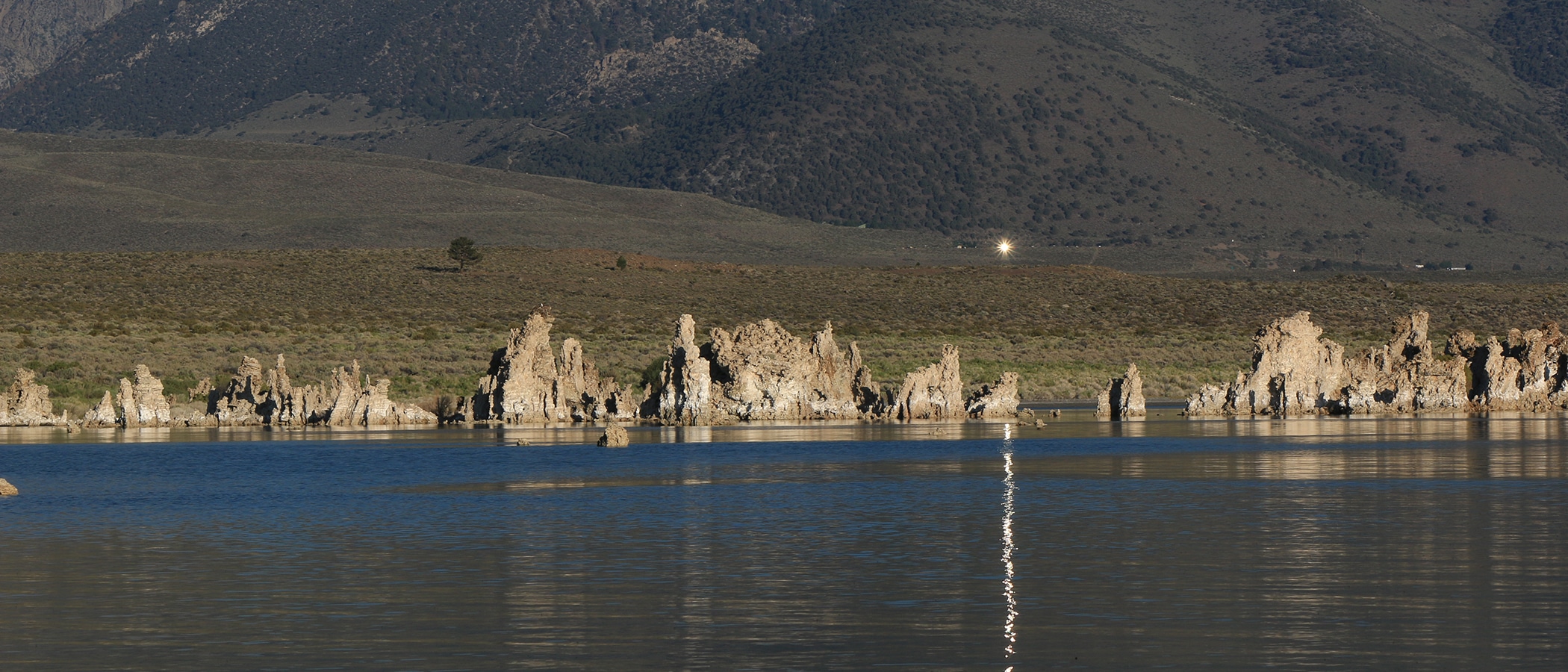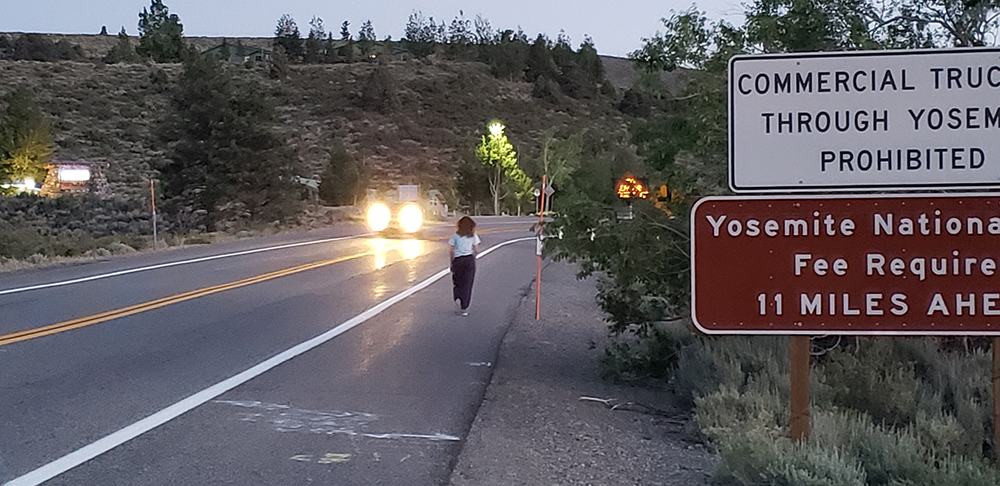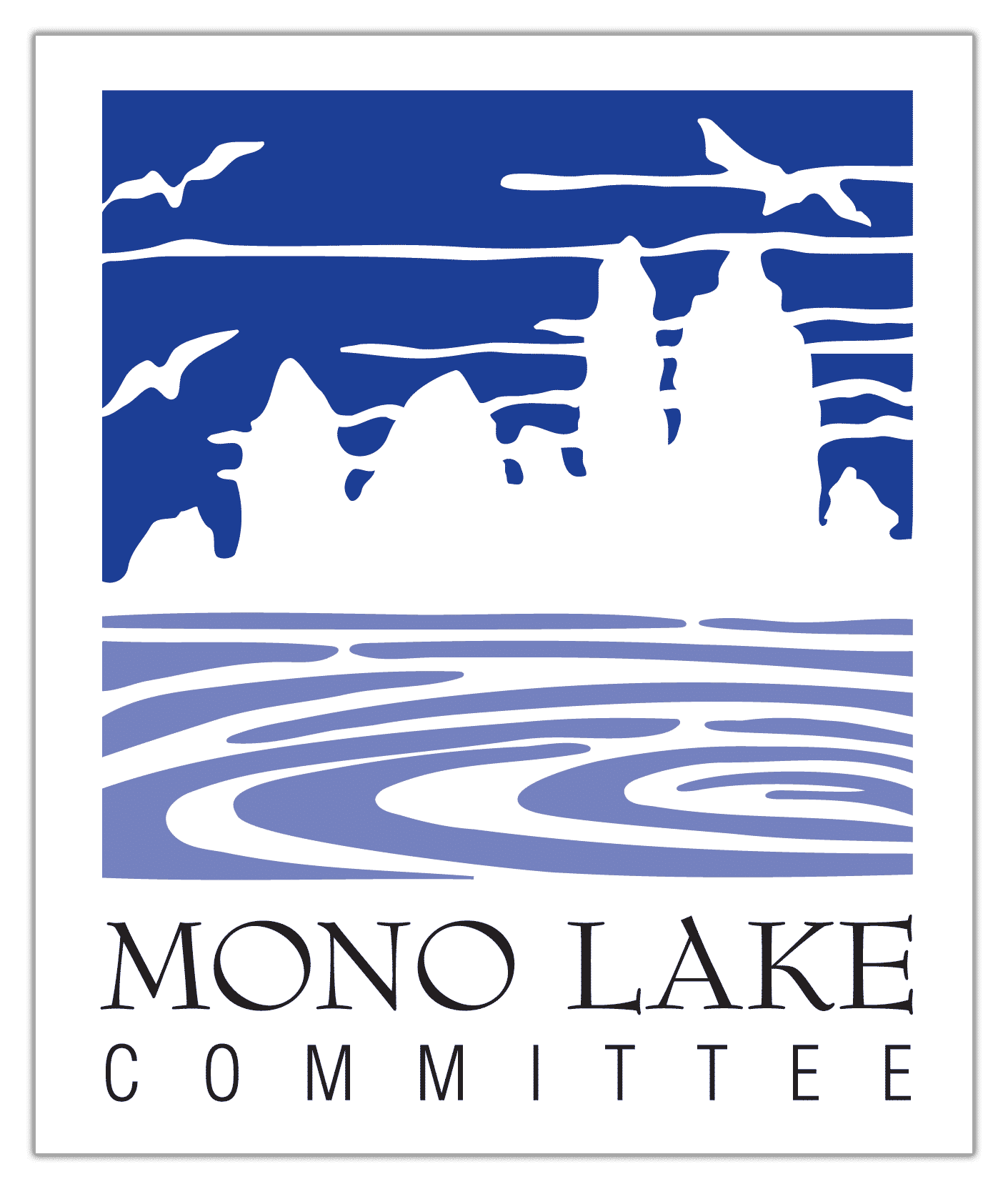
Editor’s note: The Tioga Inn project will be back before the Mono County Board of Supervisors on Tuesday, October 13, 2:00–5:00pm, with the (likely) potential to continue the topic on Wednesday, October 14 at 9:00am if needed. While the item has not yet been agendized, two documents have been posted: the Alternative 7 Description + Concept Site Plan + Landscape Concept Plan and the Conceptual Grading Plan. For a refresher on this controversial development project we have posted here the article Bartshe wrote for the Fall 2020 Mono Lake Newsletter, which is being printed right now. Stay tuned for more on this project before next week’s Board of Supervisors meeting.
The largest project of its kind ever proposed in unincorporated Mono County, the Tioga Inn development project continues to transmute and persist despite nearly unanimous public objection to its significant adverse environmental impacts.
On three days of hearings this past summer (June 29, 30 and August 6), the Mono County Board of Supervisors navigated overwhelming public opposition to the project, considered project changes, posed questions to the developer, and ultimately delayed a final decision to sometime this fall (see note above).
At the August hearing the developer advocated for the most recent “Alternative #7–Hybrid Plan,” along with other last-minute project changes. Public comments and concerns addressed the project’s impacts, hydrology questions, and CEQA issues. The project has not incorporated sufficient solutions to mitigate the five adverse impact areas, so comments in support of the project are scarce, numbering roughly a dozen, while those in opposition have been in the hundreds. The August hearing was the third time that the local community and the public strenuously challenged the project in a public forum.
Unfortunately, the four voting Supervisors did not indicate a majority interest to deny the project outright. Instead, they asked detailed questions and gathered additional information and clarifications, signaling the possibility of approving the project and overriding public opposition to its significant adverse impacts to the visual quality of Mono Lake, public safety, and more.
Developer threatens Supervisors with an appeal-to-fear argument
During the August hearing, the developer, Dennis Domaille, threatened the Supervisors with a worsening housing crisis in Mono County, alleging that a separate hotel project—which has still not been built after 27 years—will suddenly become an economic reality that will saddle Mono County with a serious housing crisis.
Domaille concluded his opening comment at the August hearing with, “If the hotel gets built without approval of this project, instead of the housing situation maintaining somewhat of a status quo, it’s going to get infinitely worse… Right now there are a couple people looking at the hotel site; they want to build it.”
Important questions persist about the economic viability of building and running a hotel within the stipulations of the project’s 1993 Specific Plan, and no evidence of an actual buyer with the necessary financial capacity was presented. If building a hotel on the site is a real economic interest, why suddenly now, three decades later, and during a pandemic?
Important questions also surround whether the proposed housing would be available or affordable for future hotel employees when and if a hotel is ever constructed. While the housing is described as “workforce,” there will be no legal requirement for affordable rental rates, and the Hybrid Plan’s description of “new market rate units” provides no guarantees that the housing will be within the economic reach of seasonal employees.
The project remains a poorly planned effort that fails to address worker housing needs within the context of a hypothetical hotel. What will the Tioga Inn project look like in the next 27 years? It’s anyone’s guess, and appealing to fear is an easy reach.
Why this project matters
The Mono Lake Committee does not typically engage in development projects, but this one impacts Mono Lake, plain and simple.
Mono Lake is among the natural wonders of the world, loved by millions. The California Supreme Court affirmed Mono Lake’s scenic value in its landmark 1983 Public Trust decision. Just as Los Angeles’ excessive water diversions imperiled the lake’s recreational and scenic uses, so too does a major commercial development that brings significant adverse visual impacts to future visitors. Approving a project that impairs Mono Lake’s scenic value and diminishes the visitor experience is, by default, granting permission to erode the Public Trust.
The Committee has provided detailed and lengthy comments on this project since the scoping phase in 2016. Many focused on approaches to eliminate or greatly minimize the visual impacts on South Tufa, across the Mono Basin National Forest Scenic Area, and in the Mono Lake Tufa State Natural Reserve. Only with the arrival of the Hybrid Plan in early August did the developer take more substantive measures to screen buildings and lower building heights.
However, the Hybrid Plan does not offer any quantifiable standards for eliminating visual impacts at South Tufa, especially in regard to light and glare coming from the project’s prominent location above Mono Lake. Consequently, this alternative remains a significant adverse impact to light and glare aesthetics, which is acknowledged in the environmental document.
A poorly conceived project with safety liabilities
The Tioga Inn project, which would triple the population of Lee Vining, also creates a significant public safety hazard. Without a safe pedestrian access route linking the future residential complex with Lee Vining, children, residents, and visitors moving back and forth between the two sites must walk beside busy traffic along Highways 395 and 120 West. The potential for upwards of three hundred new residents, including students, with no safe way to move between school, residences, the local market, post office, and friends—except by motor vehicle—is simply poor planning.
The lack of pedestrian and bicycle connectivity is a significant impact that genuinely upsets many in the community and Mono County. Mitigating this impact is possible. Unfortunately, the current version of the Tioga Inn proposal asks the Supervisors to approve the project first, and promises six months later to formally study the feasibility of pedestrian access. Regardless, the developer stated clearly during the August hearing that he is unwilling to support any pedestrian access unless it is built with public funds: “It would be very expensive. There is no way I would agree to pay for it.”

Public comments have made a difference
If you have commented in the course of this project’s long and winding course, thank you. Public comments have, at the very least, pushed the developer and Mono County staff to consider modifications that would have otherwise never been incorporated. Despite the new Hybrid Plan, the project has yet to achieve sufficient mitigation, and it is disappointing that overwhelming public opposition does not necessarily stop projects with privatized benefits and high social costs.
After the August hearing, the Supervisors adjourned with the intent to see more precise site plans regarding new “open development zones” proposed with the Hybrid Plan. Many other parts of the project have yet to be discussed in detail, including site screening, the lack of pedestrian and cyclist connectivity with Lee Vining (despite its feasibility), and the very real challenge to the capacity of the Lee Vining Volunteer Fire Department to serve a project that essentially creates an additional new town site.
Exhaustive process, uncertain next date
The hearing in June gave clear direction to the developer to address specific project issues. By the end of the August hearing, the Supervisors had not finished investigating the Hybrid Plan to see if those issues had been sufficiently addressed. As of press time, a continuation of the process looks likely for sometime in October (see note at the top of this post for the next hearing date).
The Committee supports thoughtfully planned projects that respect the scenic resources at Mono Lake, but the Tioga Inn, which seeks special approval for its five significant adverse impacts—not least among them safety impacts to people—remains a challenge for both supporters of Mono Lake and residents of Lee Vining and the Mono Basin.
Top photo by Bartshe Miller: Without proper mitigations the Tioga Inn project would be highly visible from South Tufa, as demonstrated here with 2′ x 3′ piece of glass reflecting the rising sun from the project site.
This post was also published as an article in the Fall 2020 Mono Lake Newsletter (pages 6 & 24).
